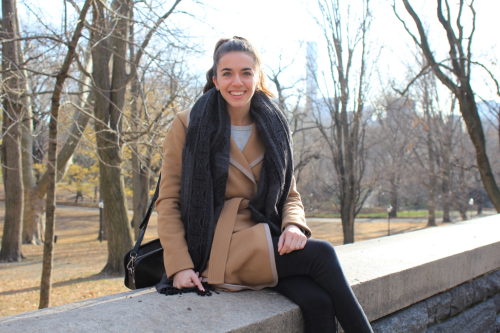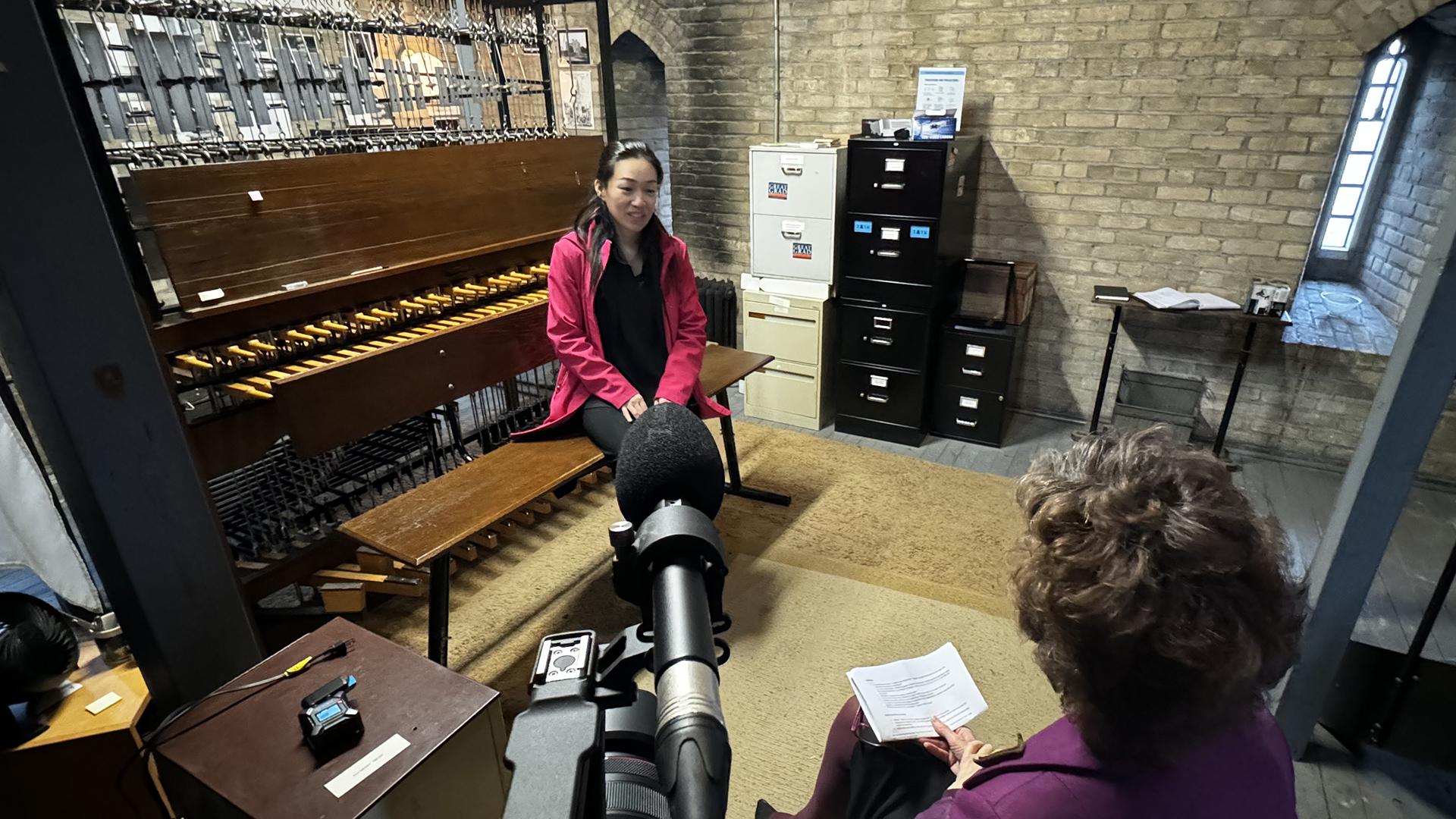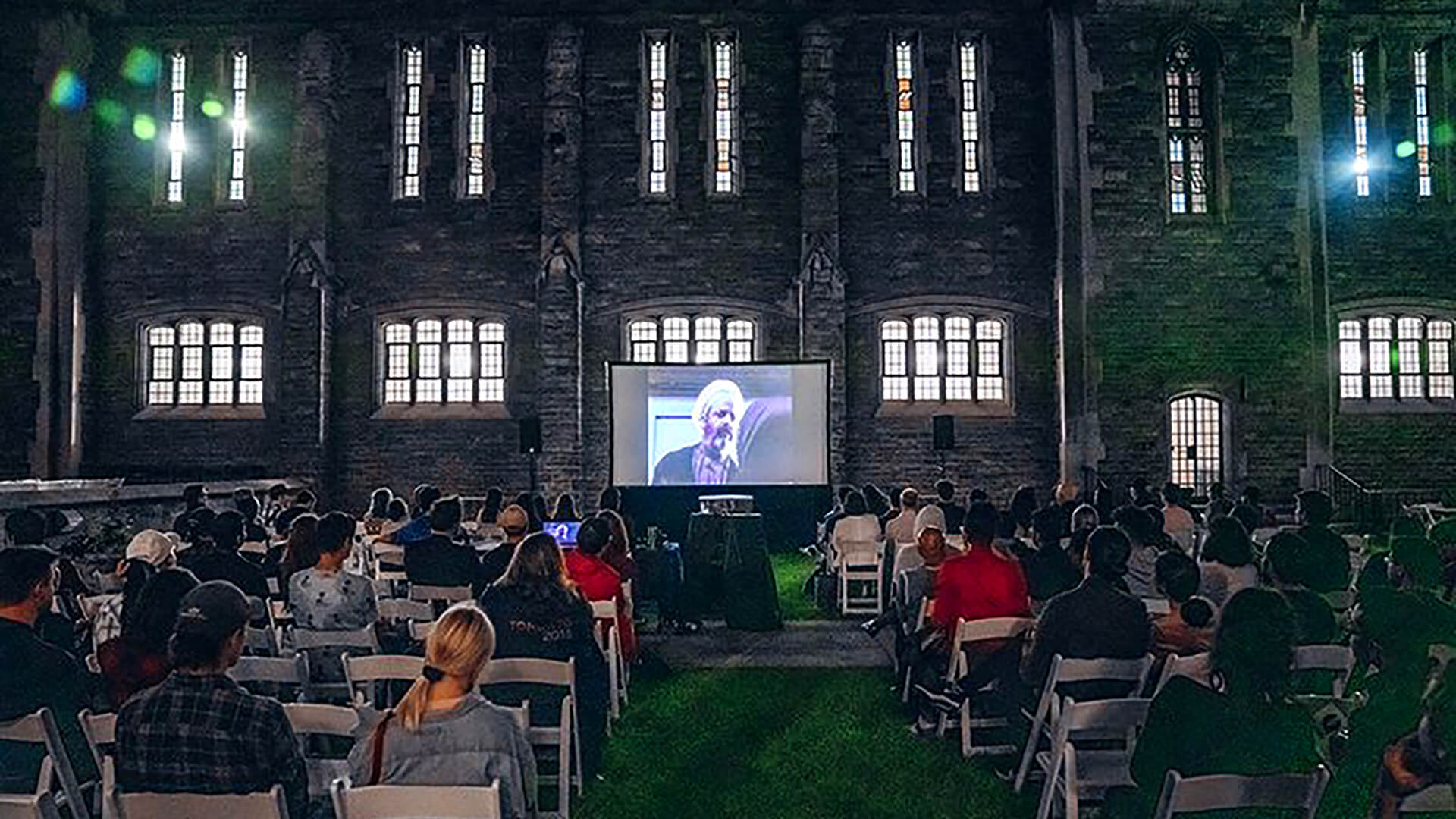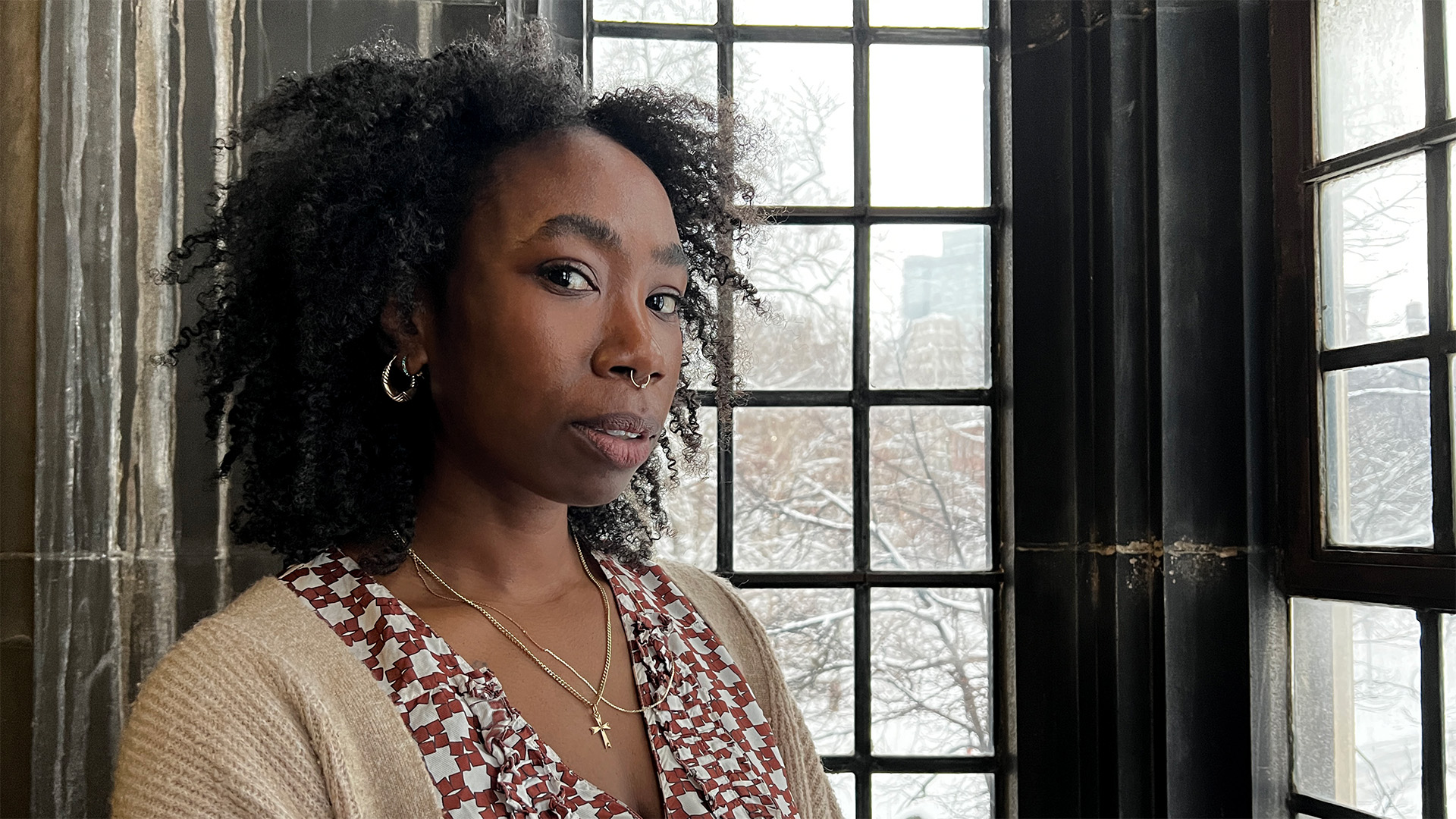
Laura Siracusa on Helping to Organize the First-Ever Hart House Global Commons
Ask graduating student, Laura Siracusa to describe herself, and she’ll tell you that she “has a penchant for writing comical Instagram captions, listening to podcasts, and petting neighbourhood dogs.”
Laura is a textbook millennial: a plugged in social-networker, a documenter of daily living, and a freshly minted graduate who is looking forward to taking a break between graduation and grad school to pursue her passions, and pet as many labradoodles as she can.
But millennials like Laura are also leading a new wave of social activism and bringing fresh perspectives, approaches and enthusiasm for community-building to the University of Toronto.
Laura Siracusa has already developed an impressive resume of work experience advocating and implementing service-based programs for marginalized groups: newcomers, refugees and at-risk youth with organizations such as Skills for Change and Me to We.
She was also instrumental in the organization of the first-ever Hart House Global Commons, a conversation series created by Warden John Monahan to foster meaningful cross-cultural dialogue about pressing global issues between international and domestic students at U of T as well as with their peers at partner institutions around the world. We sat down with Laura to find out why she feels Hart House is the ideal place to hold difficult conversations, how the experience has changed her understanding of building community, and how her relationship with Hart House continues to evolve.
You helped organize the inaugural Hart House Global Commons. Why did you want to participate?
I wanted to make an impact in my own U of T community. I was excited to play a role in a project that aimed to bring the University together by actually employing its rich diversity and size for the better. Plus, given the prevailing divisiveness in global affairs, I thought that learning more about the practices of active dialogue would be a great starting point for me to engage with controversial conversations and topics in a beneficial way.

Can you talk a little bit about your role?
In the early stages, I spent a lot of time researching already-established dialogue-based practices methods, and then I put together a report on how those practices might look in the context of Hart House and the Global Commons.
Then I worked on creating and compiling discussion questions and resources on the topic we had chosen for the first Global Commons, “The Rise of a New Nationalism” that was a collaborative effort with the other members of our Student Organizing Committee, which was made up of committed students from multiple disciplines from all across the university.
More broadly, through my involvement in meetings, research, and general organization over the year, I think my responsibility was mainly to represent my peers as faithfully as possible by contributing a student perspective and voice to the development of the Global Commons.
How did you find the process?
The process felt mostly exciting. Hart House was an extremely supportive and inclusive space from the beginning, and that really helped to make me carry out my part smoothly and effectively. Everyone working with me at Hart House equipped me with tons of background knowledge and resources so that I really understood what the goal of the project was, and where it came from. Along the way, everyone’s constant accessibility and encouragement made the large-scale event feel far less intimidating.
Why do you think initiatives like the Global Commons belong at Hart House?
For starters, these conversations should take place at Hart House because it is at the geographic centre of both a city and a school that seem to wholly represent at least some sense of coming together across difference. More specifically, the mandate of Hart House is focused on fostering good local and global-citizenship, community-engaged learning, and a diversity of ideas and perspectives—so what better and safer place to have a bunch of widely different folks delve into big topics, and share their experience and knowledge with one another in a meaningful way?
During the Hart House Global Commons, you acted as a table facilitator. What did you glean from that experience?
My experience as a table facilitator definitely impacted my understanding of socially responsible citizenship, and what social justice and community engagement look like. I previously thought that the definitions of those concepts were a lot more rigid and narrow than they are in reality.
Before the event, I had anticipated that it would only appeal to individuals who were already politically-charged, engaged in social-justice activities or focused on current affairs in their academic studies.
I was proven wrong. I was surrounded instead by industrial engineers, microbiologists, sociologists, English majors, and more—some of whom presented their concerns passionately, and some of whom just listened intently. It felt great to be a part of that.

Can you describe how Hart House has helped you further your learning in your field of study?
Having done a double-major in Equity Studies and Literature and Critical Theory, much of what I’ve learned over my time at U of T has been very theoretical and conceptual rather than practical and applied. While at Hart House, I learned how the principles and foundational theories of social justice and anti-oppression can be applied to a real cause or project.
It’s one thing to write an essay about best practices, and another to try put those practices into action—it was a new experience for me, and a really affirming experience because it showed me how valuable that seemingly abstract knowledge is. I also learned a lot more about how deliberative dialogue methods can be used to bring about social change and inspire community engagement, which is definitely something I’ll make use of in the future.
Did you develop any tools/skills at Hart House that will benefit you after graduation?
Absolutely, but I had such an immersive experience at Hart House that I feel like I’m leaving with something much more valuable and transferable than a perfect list of newly gained skills.
I can say for sure that I developed stronger facilitation skills, event-planning and coordination abilities, more effective group-work practices, and maybe most importantly, I got to practice and enhance my listening skills. I think active listening is something that everyone should have the opportunity to practice and nurture.
Now that you are a graduate, what ’s next for you? Will you stay in touch with Hart House?
After I graduate I plan to pursue a Masters degree, but not right away. During my year off, I want to explore different opportunities that interest me— mental health and psychology, writing, and wherever else I feel drawn to like theatre, children’s literature, and social equity.
I’m definitely going to “keep my options open”…but I do have some strong passions and interests that I hope to explore more thoroughly over the next year and later through a Masters program. I am very interested in child and youth mental health counselling, specifically with respect to it’s intersection with education.
As far as Hart House goes, I will gladly come back in any capacity as long as they’re happy to have me—because I’ve really loved my experience at Hart House. I’d love to work alongside other students who are looking to find a space where they feel recognized and where they feel like they’re making a meaningful contribution at U of T or in their community, because that’s what Hart House gave me—it would be so great to see others arrive at that feeling as well. In any case, I’ll surely be back for visits and I’m very eager to see how the Global Commons grows in the years to come.




